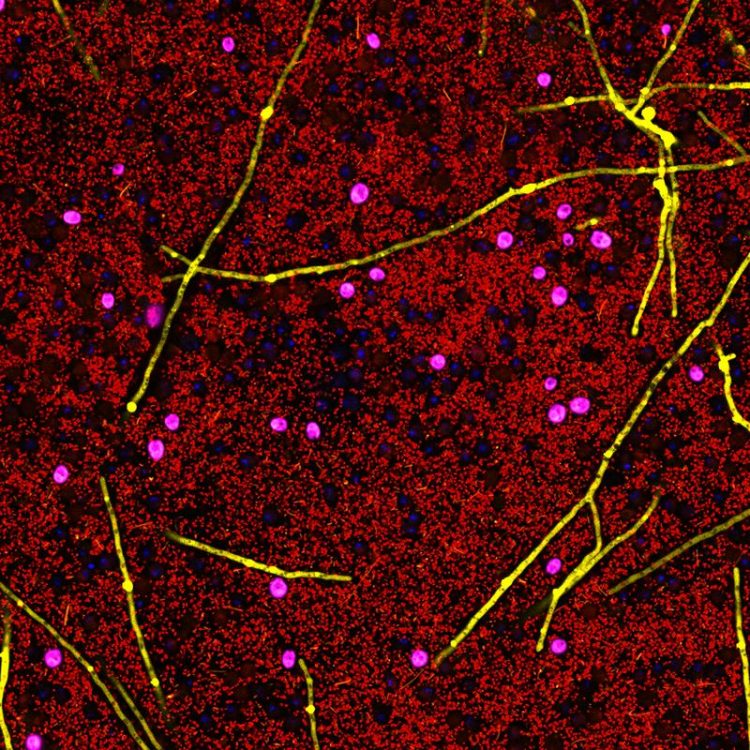Fight diabetes with exercise

Positive effects of exercise in diabetes prevention are determined by the patient’s gut microbiome. Hanno Schoeler, Leibniz-HKI
Major causes for type 2 diabetes are an unbalanced diet and lack of exercise. GPs advice patients diagnosed with prediabetes, where the blood sugar level is permanently raised but does not exceed the critical threshold for diabetes, to follow a light exercise regime to prevent the development of type 2 diabetes.
Often this behaviour change is successful; however, there is a small but relevant number of patients, which do not react positively to it. In some rare cases exercise has even a negative effect and causes advancement to type 2 diabetes.
Gianni Panagiotou of the Leibniz Institute for Natural Product Research and Infection Biology, Jena, and colleagues from the University of Hong Kong compared the gut microbiome of prediabetes patients responding to exercise with that of patients unresponsive to it.
39 male individuals diagnosed with prediabetes took part in the study. The analysis revealed a correlation between blood sugar levels, the gut microbiome and exercise. “People with high blood sugar levels react differently to exercise. We were able to show that this variability is caused not only by the composition of the gut microbiome but as well by its functionality.”
The gut microbiome plays an essential role in human metabolism. In responding patients the synthesis capacity of beneficial short chained fatty acids and the catabolism of branched-chain amino acids were enhanced, whereas high levels of harmful metabolic compounds were detected in non-responding test persons.
To verify the findings the gut microbiome of the probands was transferred to obese mice. Only mice treated with microbiota of patients responsive to light exercise showed the same positive effect on their gut microbiome and their metabolism.
In future, the analysis of the gut microbiome can be used to predict therapy response of individual prediabetes patients. “These findings will enable diabetes researchers to develop new stratified therapies”, so Panagiotou.
The microbiome is the entirety of all microbes living in the same environment for example the gut. It is believed that the gut microbiome plays a crucial role in human health and wellbeing. The formation of microbial communities and the interaction within are the focus of the Cluster of Excellence “The Balance of the Microverse” based in Jena.
Gianni Panagiotou is member of this cluster and of the Collaborative Research Centre FungiNet. He is as well coordinator of the Marie Skłodowska-Curie training network BestTreat. The study is aligned to research performed by his group in the course of these activities. The study was published in Cell Metabolism, and is chosen as research highlight in the next issues of Nature and Nature Endocrinology.
Assoc. Prof. Gianni Panagiotou
Liu Y, Wang Y, Ni Y, Cheung CKY, Lam KSL, Wang Y, Xia Z, Ye D, Guo J, Tse MA, Panagiotou G, Xu A (2019) Gut microbiome fermentation determines the efficacy of exercise for diabetes prevention. Cell Metabolism, https://doi.org/10.1016/j.cmet.2019.11.001.
Media Contact
More Information:
https://www.leibniz-hki.deAll latest news from the category: Life Sciences and Chemistry
Articles and reports from the Life Sciences and chemistry area deal with applied and basic research into modern biology, chemistry and human medicine.
Valuable information can be found on a range of life sciences fields including bacteriology, biochemistry, bionics, bioinformatics, biophysics, biotechnology, genetics, geobotany, human biology, marine biology, microbiology, molecular biology, cellular biology, zoology, bioinorganic chemistry, microchemistry and environmental chemistry.
Newest articles

First-of-its-kind study uses remote sensing to monitor plastic debris in rivers and lakes
Remote sensing creates a cost-effective solution to monitoring plastic pollution. A first-of-its-kind study from researchers at the University of Minnesota Twin Cities shows how remote sensing can help monitor and…

Laser-based artificial neuron mimics nerve cell functions at lightning speed
With a processing speed a billion times faster than nature, chip-based laser neuron could help advance AI tasks such as pattern recognition and sequence prediction. Researchers have developed a laser-based…

Optimising the processing of plastic waste
Just one look in the yellow bin reveals a colourful jumble of different types of plastic. However, the purer and more uniform plastic waste is, the easier it is to…



